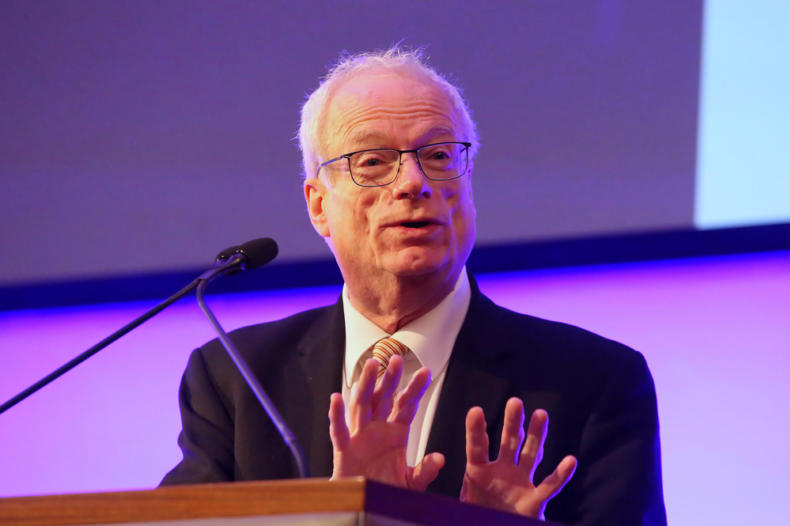Becoming a valued regulator - IPReg chair sets out vision
From education and CPD to creating value for the creative industries, Chair of IPReg Lord Smith shared his vision for the future of IPReg and the IP professions at our Spring Conference.

In the keynote speech last week (14th March) Lord Smith discussed the crucial role of intellectual property (IP), his vision for Intellectual Property Regulation Board (IPReg) as a “genuinely valued regulator”, and how he hopes new education providers can be introduced to teach the IP practitioners of tomorrow.
Becoming an efficient and modern regulator
Lord Smith told delegates: “IPReg wants to operate as a really efficient and modern regulator. I am determined that we continue to make progress.”
“I want us to get to a position where accreditation by IPReg can be seen as a badge of honour and respect for attorneys who wish to practice in this field. I don’t think we are there yet but that is where I want to get to.
“For me, my overall objective is that IPReg should become a genuinely valued regulator,”.
To help achieve this, Lord Smith set out some of the “immediate tasks” IPReg needed to undertake in the next two years.
These include upgrading its computer systems and introducing a new customer relationship management (CRM) system. An office move is also in the pipeline, to help save costs.
The final “immediate task” is a review of rules and procedures, which Lord Smith acknowledged are “not particularly adequate”.
This review will be conducted in close cooperation with CITMA. “We want to ensure that your priorities are the ones we look at first,” Lord Smith concluded.
Education
IPReg oversees qualification for trade mark and patent attorneys. Lord Smith told delegates that it will look at routes into the profession.
“We do need to rethink how we accredit and continue to oversee the education provision for the training of trade mark attorneys by places like Queen Mary and Nottingham.
“Regular monitoring of what is going on is something that we are going to want to put in place. It isn’t enough to do a once every five years exercise.
“We also think that there must be scope for encouraging other providers to come into the picture. Relying on a very small number of providers is not necessarily going to be the best way going forward.”
Continuing Professional Development (CPD)
Currently qualified attorneys need to complete 16 hours’ CPD each year to remain accredited. Lord Smith outlined his approach to reviewing the current standard.
“I don’t think that we have completely got the issue of continuing professional development right,” said Lord Smith.
“It is important from the point of view of consumers that we can rely on attorneys keeping up to date in the knowledge, skills and experience that they have. At the moment this tends to be something of a formulaic exercise.
“We don’t necessarily need a one size fits all approach to CPD, so let’s have a discussion over the next year or two about how we might be able to do this a little bit better.”
The value of intellectual property
Lord Smith took the opportunity to discuss what he believes is the crucial role that intellectual property plays in the wellbeing and future of the UK economy.
He said: “In an advanced industrial economy, the source of our continuing and developing wealth has to be from the ideas and the intellectual and scientific work that creates new products, develops new service and brings new things into play.
“When I was Secretary of State for Culture I devoted a lot of my time to the creative industries and one of the points I made very strongly to my colleagues in government is that the creative industries are incredibly important because they derive their economic value from securing the economic return on an idea.
“The way we secure that economic return is through intellectual property rights, making sure that whether it is patents or trade marks we secure that economic value for the future of the UK economy.”
About Lord Smith
Lord Smith became IPReg Chair in September 2018.
He has a longstanding career as a politician. He was a Labour Councillor before becoming MP for Islington South and Finsbury in 1983.
When Labour came to power in 1997 he was appointed as Secretary of State for Culture, Media and Sport, and Chairman of the Millennium Commission.
After retiring as a Member of Parliament in 2005 he was made a life peer in the House of Lords. He currently sits on the crossbenches as an independent Peer.

